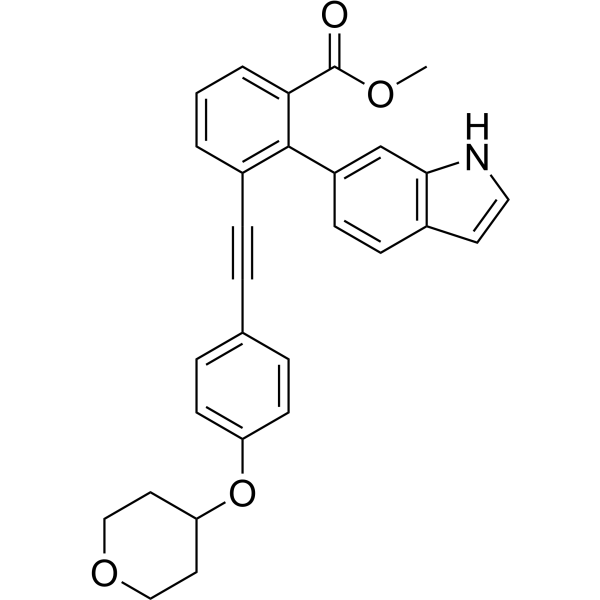Viral Antigens(病毒抗原)
A viral Antigen is an antigen with multiple antigenicities that is protein in nature, strain-specific, and closely associated with the virus particle. A viral antigen is a protein encoded by the viral genome.A viral protein is an antigen specified by the viral genome that can be detected by a specific immunological response.
Viruses are infectious pathogens that cause serious diseases & major threats for global public health, such as influenza, hepatitis, & AIDS. Virus is a sub-micrometer particle that has DNA or RNA packed in a shell called capsid. Viral antigens protrude from the capsid and often fulfill important function in docking to the host cell, fusion, and injection of viral DNA/RNA. Antibody-based immune responses form a first layer of protection of the host from viral infection; however, in many cases a vigorous cellular immune response mediated by T-cells and NK-cells is required for effective viral clearance. When cellular immunity is unable to clear the virus, the infection can become chronic, and serum antibodies to the viral pathogen are used as first indicator for the diagnosis of the disease.
ELISAs provide a valuable tool in the detection and diagnosis of virus infection. The ability to produce recombinant viral proteins will ensure that future ELISAs are safe, specific and rapid. Even when a virus cannot be cultured, provided gene sequence is available, it is possible to rapidly respond to emerging viruses and new viral strains of existing pathogens.
Recombinant viral antigens contain part of viral sequence meaning that the recombinant antigen contains a region which can be recognized by different antibodies produced by different individuals. This reduces the risk of false negatives which can occur with synthetic peptides, which contain only a small portion of the entire protein. If an individual infected with a viral antigen makes antibodies to a part of the protein not included in the synthetic peptides, a false negative results.
Recombinant viral protein usually contains a fusion protein/partner which produces superior attachment to assay surfaces such as wells. For this reason, smaller amounts of recombinant protein will produce the same results as larger amounts of unfused protein. The choice of fusion partner prevents false positives, allowing superior adhesion without incorrect results.
Recombinant Viral proteins are expressed in bacteria, yeast, mammalian cells, and viruses. E. Coli cells were first to be used for this purpose but the expressed proteins were not glycosylated, which was a major drawback since many of the immunogenic proteins of viruses such as the envelope glycoproteins, were glycosylated. Nevertheless, in many instances, it was demonstrated that the non-glycosylated protein backbone was just as immunogenic. The obvious advantage of recombinant viral antigens is that they are available in unlimited quantities and the production and quality control processes is simple.
Advantages of defined using recombinant viral antigens:
1. Production and quality control is simple.
2. No nucleic acids or other viral or external proteins, therefore less toxic.
3. Safer in cases where viruses are oncogenic or establish a persistent infection.
4. Feasible even if virus cannot be cultivated
Disadvantages:
1. May be less immunogenic than conventional inactivated whole-virus vaccines.
2. Requires adjuvant .
3. Fails to elicit CMI.
Facts about Viral Antigens:
1. A Viral Protein Mimics its Way into cells.
2. Viral Protein Helps Infected T Cells Stick To Uninfected Cells.
3. The Viral Protein A238L Inhibits Cyclooxygenase-2 Expression through a Nuclear Factor of Activated T Cell-dependent Trans-activation Pathway.
4. Viral Protein is an effective preventative against ear infection.
5. HIV-1 Viral Protein R Induces Apoptosis via a Direct Effect on the Mitochondrial Permeability Transition Pore.
6. The Level of Viral Antigen Presented by Hepatocytes Influences CD8 T-Cell Function.
7. Antigen-presenting cells from calves persistently infected with bovine viral diarrhea virus, a member of the Flaviviridae, are not compromised in their ability to present viral antigen.
8. There is a difference in the distribution and spread of a viral antigen, development of lesions and correlation between presence of viral antigen and lesions.
9. The absence of viral antigens on the surface of equine herpesvirus-1-infected peripheral blood mononuclear cells is a strategy to avoid complement-mediated lysis.
10. Viral Protein Influences Key Cell-signaling Pathway.
11. A viral protein produced by cancer-causing virus influences a key signaling pathway in the immune cells that the virus infects. This stimulates the cells to divide, helping the virus spread through the body.
12. Protection by recombinant viral proteins against a respiratory virulent avian metapneumovirus has been achieved.
13. Viral O-acetylesterases are found in influenza C viruses and Corona-viruses. Viral O-acetylesterases remove cellular receptors from the surface of target cells which destroys the receptor. Recombinant viral O-acetylesterases derived from Sf9 insect cells as chimeric proteins fused to eGFP specifically hydrolyze 9-O-acetylated sialic acids, while that of sialodacryoadenitis virus, a rat coronavirus related to mouse hepatitis virus, is specific for 4-O-acetylated sialic acid. The recombinant esterases were shown to specifically de-O-acetylate sialic acids on glycoconjugates. The recombinant viral proteins can be used to unambiguously identify O-acetylated acids.
Products for Viral Antigens
- Borrelia(28)
- Chagas(3)
- Chikungunya(7)
- Chlamydia(10)
- Cytomegalo(8)
- Dengue(50)
- Ebola(4)
- EBV(13)
- Encephalitis(8)
- Feline Leukemia Virus(1)
- Hantavirus(1)
- HBsAg(7)
- Helicobacter Pylori(3)
- Hepatitis A(15)
- Hepatitis B(10)
- Hepatitis C(85)
- Hepatitis D(1)
- Hepatitis E(5)
- Herpes(11)
- HERV-K(1)
- HIV(151)
- HTLV(6)
- Influenza(72)
- Lassa(2)
- Malaria(71)
- Mumps(1)
- Mycoplasma(4)
- Norovirus(4)
- Papillomavirus(5)
- Parvovirus(3)
- Rubella(3)
- S. Typhi(5)
- SARS(85)
- Shiga Like Toxin(2)
- Toxoplasma(9)
- Treponema(16)
- Varicella(3)
- West Nile(2)
- Zika(13)
- Cat.No. 产品名称 Information
-
GP25360
T.gondii MIC-3
Toxoplasma Gondii MIC 3 Recombinant

-
GP25361
T.gondii p24
Toxoplasma Gondii p24 (GRA1) Recombinant

-
GP25363
T.gondii p29
Toxoplasma Gondii p29 (GRA7) Recombinant

-
GP25364
T.gondii p30
Toxoplasma Gondii p30 (SAG1) Recombinant

-
GP25366
T.gondii p40
Toxoplasma Gondii p40 Recombinant

-
GP25367
T.gondii ROP4
Toxoplasma Gondii ROP4 (RH2) Mosaic Recombinant

-
GP25369
T.pallidum p15
Treponema pallidum p15 Recombinant

-
GP25368
T.pallidum p15 (Partial)
Treponema pallidum p15 (Partial) Recombinant

-
GP25370
T.pallidum p15 (Partial), His
Treponema pallidum p15 (Partial) Recombinant, His Tag

-
GP25371
T.pallidum p17
Treponema pallidum p17 Recombinant

-
GP25372
T.pallidum p17 (Partial)
Treponema pallidum p17 (Partial) Recombinant

-
GP25375
T.pallidum p41
Treponema pallidum p41 Recombinant

-
GP25376
T.pallidum p41 Mosaic
Treponema pallidum p41 Mosaic Recombinant

-
GP25377
T.pallidum p47
Treponema pallidum p47 Recombinant

-
GP25379
T.pallidum p47 (Partial)
Treponema pallidum p47 (Partial) Recombinant

-
GP25381
T.pallidum TmpA
Treponema pallidum TmpA Recombinant

-
GP25380
T.pallidum TmpA partial
Treponema pallidum TmpA (partial) Recombinant

-
GC63840
Tat-beclin 1
自噬蛋白区域衍生肽
Tat-beclin 1 (Tat-BECN1), a peptide known to stimulate autophagy through mobilization of endogenous Beclin 1, induces autophagy in vitro and in vivo and improves clinical outcomes.
-
GC90488
Tat-Beclin 1 (acetate)
Tat-BECN1
一种诱导自噬的肽。

-
GP25456
TBEV Core
Tick-Borne Encephalitis Virus Core Protein Recombinant

-
GP25451
TBEV gE
Tick-Borne Encephalitis Virus gE Recombinant

-
GP25454
TBEV gE C-end
Tick-Borne Encephalitis Virus gE C-end Recombinant

-
GP25453
TBEV gE middle
Tick-Borne Encephalitis Virus gE Middle Recombinant

-
GP25452
TBEV NE
Tick-Borne Encephalitis Virus NE Recombinant

-
GP25457
TBEV NS3
Tick-Borne Encephalitis Virus NS3 Recombinant

-
GP25458
TBEV preM
Tick-Borne Encephalitis Virus preM Recombinant

-
GC45578
Thymohydroquinone
瑞香[草]氫醌
A quinone with diverse biological activities
-
GC64221
Tigloylgomisin P
巴豆酰戈米辛P
Tigloylgomisin P 是一种木质素,具有抗 HIV 活性,EC50 为 37 μM。Tigloylgomisin P 具有抗癌作用。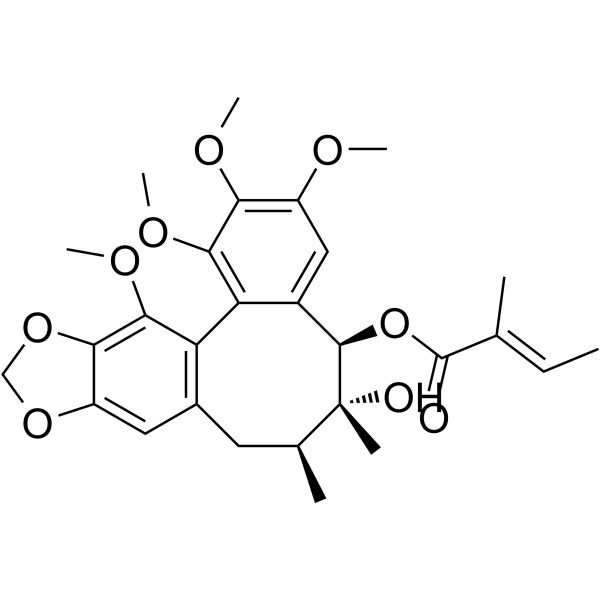
-
GC45580
Tizoxanide-d4
替唑尼特 D4
An internal standard for the quantification of tizoxanide
-
GP25362
Toxoplasma P22
Toxoplasma Gondii P22 (SAG2) Recombinant

-
GP25365
Toxoplasma P32
Toxoplasma Gondii P32 (GRA6) Recombinant

-
GP26435
Toxoplasma P35
Recombinant Toxoplasma Gondii P35 (GRA8) containing 217 amino acids was purified from E

-
GC70056
Trecovirsen
GEM91
Trecovirsen (GEM91) 是一种靶向 HIV gag 基因的反义寡核苷酸。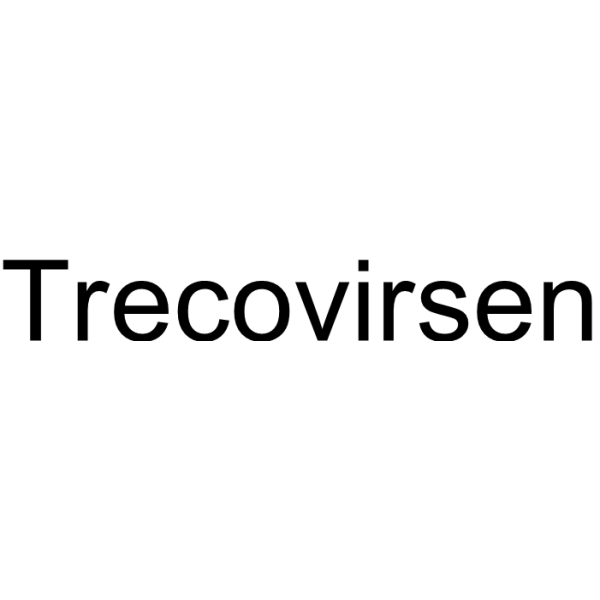
-
GC73284
Trecovirsen sodium
GEM91 sodium
Trecovirsen sodium是一种针对HIV基因gag位点的25聚反义硫代寡核苷酸。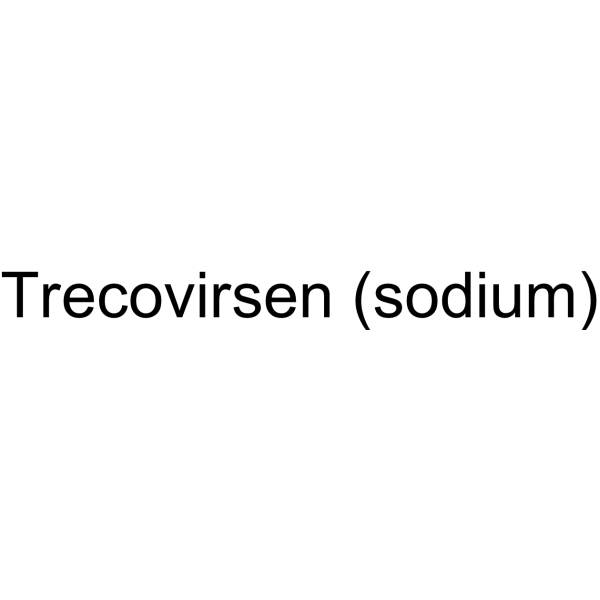
-
GP25373
Treponema p17 16.4kDa
Treponema pallidum p17, 16.4kDa Recombinant

-
GP25374
Treponema p17 22kDa
Treponema pallidum p17, 22 kDa Recombinant

-
GP25378
Treponema p47 47.7kDa
Treponema pallidum p47 47.7kDa Recombinant

-
GP25382
Treponema TmpA 45kDa
Treponema pallidum TmpA, 45kDa Recombinant

-
GP26436
Treponema TP0453
Recombinant Treponema pallidum Outer Membrane Protein TP0453 has a Mw of 26kDa, and was purified from E

-
GC41374
Trilobatin
三叶苷
A dihydrochalcone glucoside with diverse biological activities
-
GC39111
Tripterifordin
雷公藤福定
Tripterifordin 从 Tripterygium wilfordii 的根中分离出来,在 H9 淋巴细胞中具有显着的抗 HIV 复制活性,EC50 值为 3100 nM。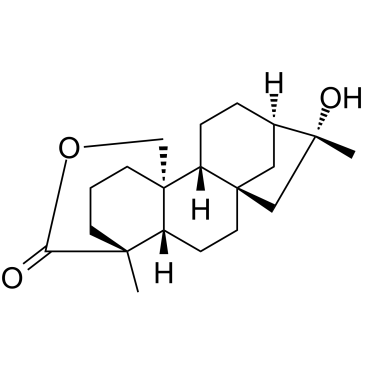
-
GC39088
Triptonine B
18-O-(3-糠酰)雷公藤春碱
Triptonine B 是一种从 Tripterygium hypoglaucum 和 Tripterygium wilfordii 中分离的倍半萜吡啶生物碱,在 H9 淋巴细胞中,可抑制 HIV 复制,EC50 值 <0.10 μg/mL。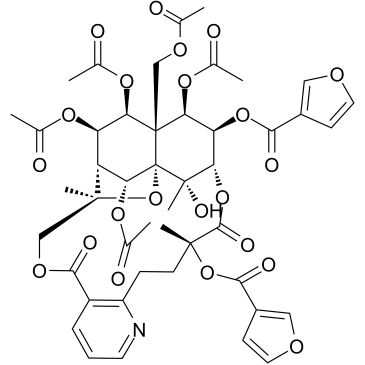
-
GP24934
U. Urealyticum
Ureaplasma Urealyticum Parvum Recombinant

-
GC71244
UC-781
UC-781 (NSC 675186)是一种高效、选择性的HIV-1非核苷逆转录酶抑制剂(NNRTI), IC50值为5 nM。
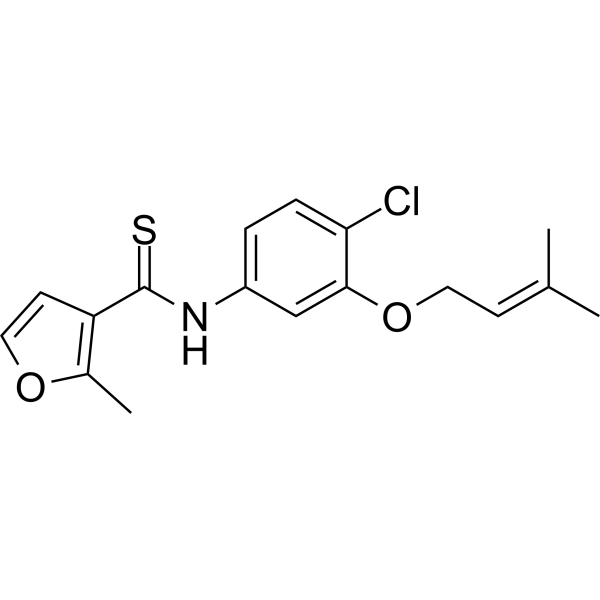
-
GC48220
Umifenovir-d6 (hydrochloride)
盐酸阿比朵尔 d6 (盐酸盐)
A neuropeptide with diverse biological activities
-
GC48231
Urumin (trifluoroacetate salt)
A neuropeptide with diverse biological activities

-
GC64378
Valproic acid-d6
丙戊酸-D6,VPA-d6; 2-Propylpentanoic Acid-d6
Valproic acid-d6 (VPA-d6) 是 Valproic acid 的氘代物。Valproic acid (VPA; 2-Propylpentanoic Acid) 是一种 HDAC 抑制剂,IC50 值为 0.5-2 mM,抑制 HDAC1 的活性,(IC50,400 μM),同时可诱导 HDAC2 的降解。Valproic acid 激活 Notch1 信号并抑制小细胞肺癌 (SCLC) 细胞的增殖。Valproic acid 可用于癫痫、双相情感障碍和偏头痛等的研究。
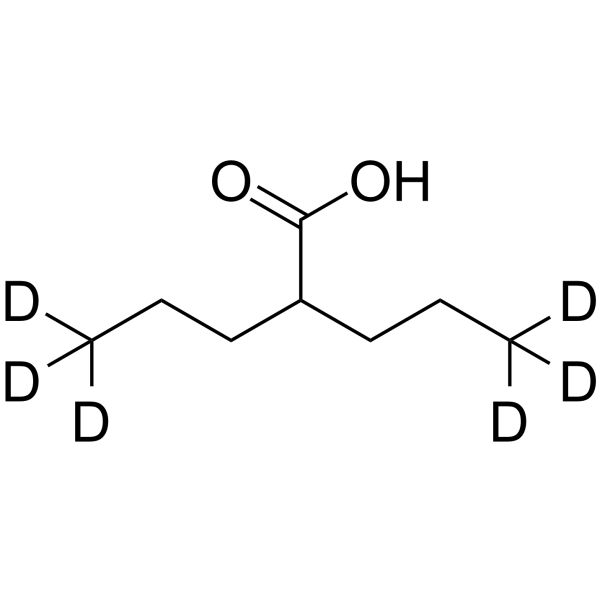
-
GP25491
Vietnam HN31242/2007
Hemagglutinin-Influenza A Virus H5N1 Vietnam HN31242/2007 Recombinant

-
GC45145
Violacein
紫色杆菌素
A bacterial metabolite with antibacterial and antiprotozoal activities
-
GC70579
VK-1727
VK-1727是EBNA1的选择性小分子抑制剂。
